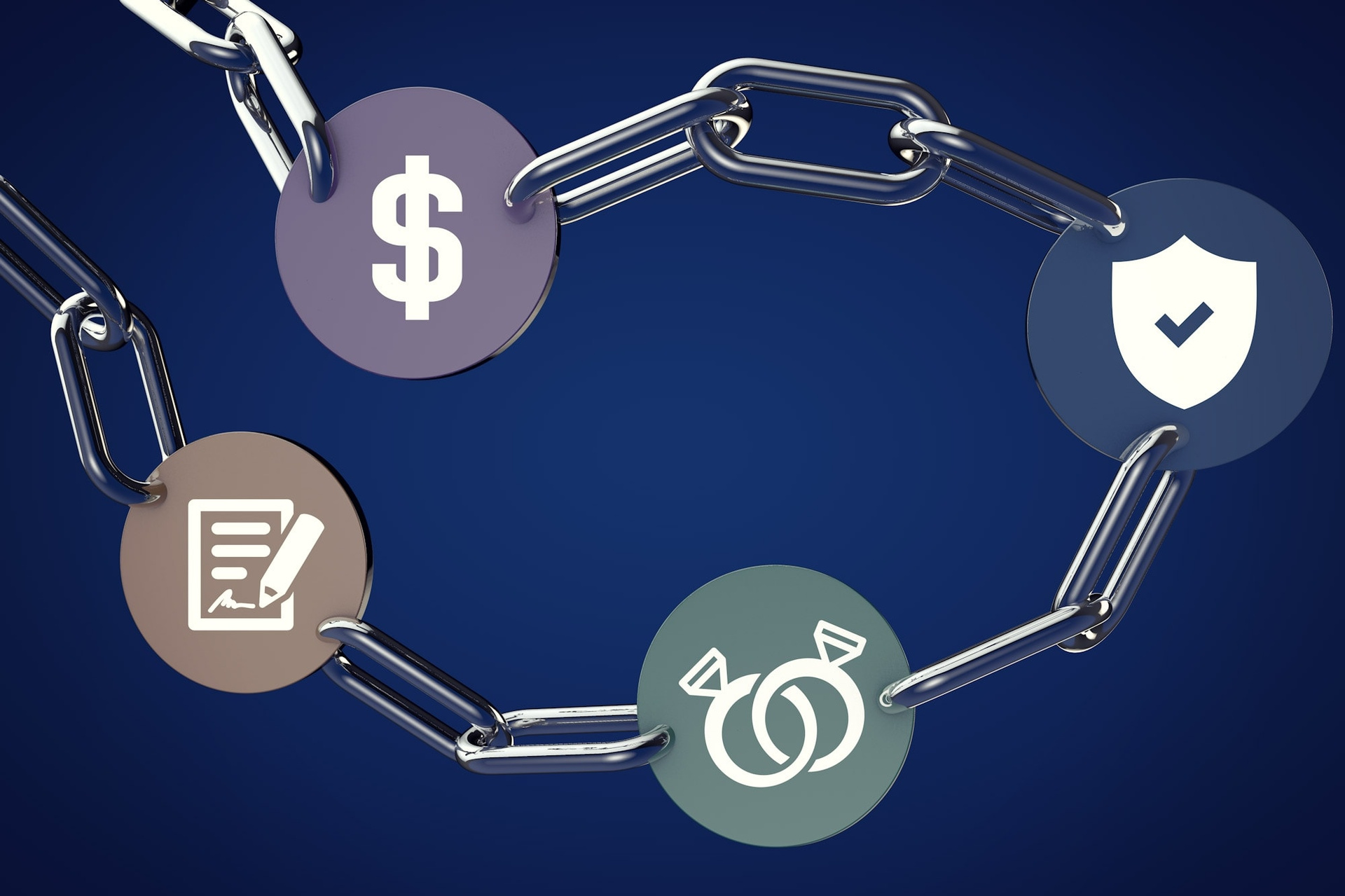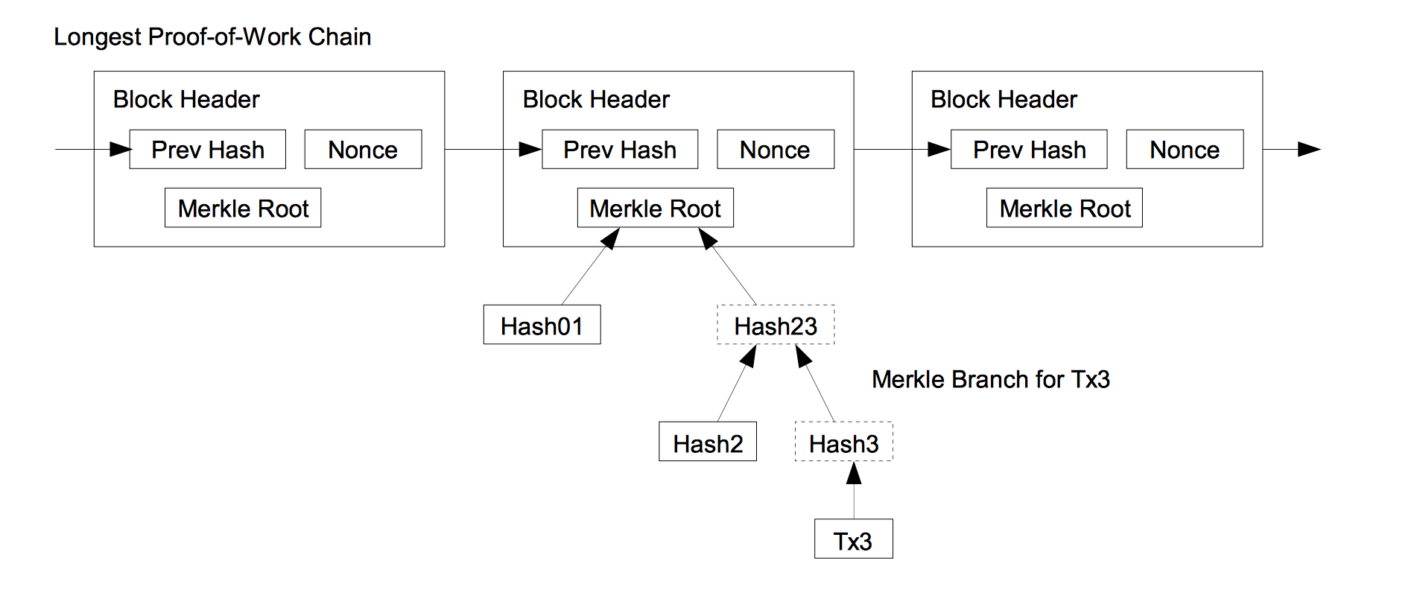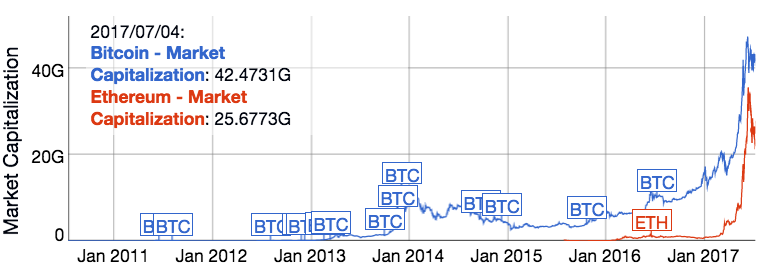Blockchain: a revolution for which we are not ready
Imagine that you could make a deal with a stranger, without even having confidence in him. Imagine that one could invest money in a bank without even trusting it. Imagine that you could rely on the justice and legitimacy of the actions of the state, even without trusting him.
What would happen then?
The world would change.
')
And it is precisely such prospects that the blockchain promises us.

The press is now only talking about the cryptocurrency, which is based on the blockchain: for the most part this is due to high prices, volatility and scandalous stories about a fiasco like those that befell Mt. Gox and The Silk Road .
But what is happening now is much bigger than just a digital currency.
Blockchain (and the consensus protocols that support it) was invented as a result of a bold developer attempt to solve the problem of creating a digital untraceable currency. By combining the achievements of cryptography, game theory, economics and computer science, they were able to create a radically new set of tools for building decentralized systems.
But the changes that their creation will bring are not limited to the new scheme of monetary circulation. It will change the whole world. And almost no one realizes this.
The famous physicist Edward Witten once said that string theory is a 21st century theory that, by chance, appeared in the 20th. He implied that the scientific community was not yet ready to evaluate it.
Blockchain is a 22nd-century technology that, by chance, appeared at the beginning of the 21st. And it becomes painfully obvious that we are not yet ready to evaluate it.
In essence, the blockchain is a surprisingly simple and elegant data structure. In fact, this is just a list of related blocks, but with one important addition - each of them contains a cryptographic hash of the previous block. Thus, a chain of blocks and their individual prints is created, right down to the very first one, which, in fact, cannot be changed.

If someone in your system recreates this linked list and verifies its legitimacy by executing all cryptographic hash functions, you get a slow, primitive distributed database that is protected from changes.
This is the blockchain. It seems nothing special, right?
Of course, to create a real working protocol, you need much more - authorization is needed (public / private key cryptography), consensus mechanism (Nakamoto consensus, implemented through proof-of-work or various types of proof-of-stake), time and space optimization ( Merkle trees and Merkle's signatures), as well as all sorted things for peer-to-peer networks. But it is better to devote a separate, more technical post to this.
Here I just want to say that blockchain is a qualitatively new tool for organizing complex systems. And we are just starting to figure out how to incorporate them into reality.
If everyone works in one blockchain, and provides information about its current state to the public domain, and it is mathematically impossible to make changes to it, and everyone downloads data according to generally accepted rules, then ... then everything changes suddenly.
Suddenly it turns out that you can build perfectly decentralized systems in which trust between the participants is not a necessary condition. If the majority of users involved in the system follow the protocol rules (in the simplest cases, 50% is enough), then the system can be provided with guarantees and security proofs. No conspiracy or playing against the rules will allow people to censor the system or spoil something in it.
You can even register the necessary requirements directly in the protocol, and then each user in the system will fix them.
With the blockchain, many serious problems with the coordination of processes simply disappear. The difficulties that precipitate the global financial infrastructure, the voting procedures, the network of international money transfers, insurance policies, the archiving of official documents and so on, up to and including government corruption, can be simply resolved by proper design.
Having created the necessary system with all the necessary guarantees, you can get rid of malicious activity. You will be able to eliminate corrupt middlemen and hunters to profit. You will be able to create radically new societies in which processes are coordinated better, more transparently and more efficiently than previous generations could have imagined.
Most people do not understand how important this fact is. I will say this: if John Locke knew about the blockchain, this would undoubtedly cause him to write a third treatise on the board. It would be a revolutionary idea of how to manage society.
Most of the people from Silicon Valley, with whom I am familiar, are currently focused on deep learning and AI, considering them the most promising of the revolutionary technologies. And I fully share their enthusiasm! In-depth training will revolutionize many industries and provide opportunities that we have previously only read in science fiction novels.
But the blockchain ... blockchain will make a revolution in society as a whole. It will generate new forms of government, which until now existed only in the dreams of utopians and philosophers.
However, if you look at the current situation with cryptocurrency, this impression may not be formed. The agiotage around it is mainly created by two categories of people.
The first is crypto-anarchists and hackers who write low-level protocols. They are in a hurry to create what will later become a decentralized TCP / IP stack for future assemblers. The second category includes those who are trying to cash in on unknowing optimists.
Unfortunately, it is the latter that attract the most attention.
Imagine: in the yard in 1995, you roam the world wide web, moving from one simple fan site for all sorts of eccentrics to another, and you think: “Wow. This strange little ecosystem will someday grow into something big. ”
A few years ago, the blockchain was just at this stage. In other words, he successfully crossed the line Angelfire. Now that he has proven that he is fit for something, the next step is inevitable.

You've probably heard of ICO mania or the noise that has been raised around the prices of Bitcoin and Ethereum . The most intelligent and enterprising have already understood everything and saw the enormous potential that the blockchain carries. Already, people are knocking off and losing fortunes, betting on the future of cryptocurrency.

It is a pity that at the moment blockchain is perceived by people primarily as a material for speculation. Behind all this noise the signal is lost.
But this was to be expected. This has already happened.
When people began to realize the incredible potential that lies on the Internet, a lot of money was invested in a variety of domains. Waiting for the moment when the addresses began to be snapped up en masse and prices jumped to the skies, speculation went on new and new coils, until finally in 2001 everything collapsed . What is happening now can be compared with this precedent. In the end, we are waiting for the collapse.
But when the dust settles, as in the case of domains, serious players - Microsoft, Amazons, Googles - will have to take ungrateful work to build the future for themselves.
A lot of work to be done.
I recently left my place at Airbnb. Prior to that, for more than a year I was dealing with cases of payment fraud. It was an interesting and important job - Airbnb is generally a wonderful company - but the more I learned about cryptocurrency and the blockchain, the stronger I became in the thought that they would change the world.
That is why from now on I will work with the blockchain (and, probably, continue to write about it too). If you are a developer and want to learn how to join those who are building the future, read the materials on the link and get down to business!
What would happen then?
The world would change.
')
And it is precisely such prospects that the blockchain promises us.

The press is now only talking about the cryptocurrency, which is based on the blockchain: for the most part this is due to high prices, volatility and scandalous stories about a fiasco like those that befell Mt. Gox and The Silk Road .
But what is happening now is much bigger than just a digital currency.
Blockchain (and the consensus protocols that support it) was invented as a result of a bold developer attempt to solve the problem of creating a digital untraceable currency. By combining the achievements of cryptography, game theory, economics and computer science, they were able to create a radically new set of tools for building decentralized systems.
But the changes that their creation will bring are not limited to the new scheme of monetary circulation. It will change the whole world. And almost no one realizes this.
The famous physicist Edward Witten once said that string theory is a 21st century theory that, by chance, appeared in the 20th. He implied that the scientific community was not yet ready to evaluate it.
Blockchain is a 22nd-century technology that, by chance, appeared at the beginning of the 21st. And it becomes painfully obvious that we are not yet ready to evaluate it.
What is a blockchain?
In essence, the blockchain is a surprisingly simple and elegant data structure. In fact, this is just a list of related blocks, but with one important addition - each of them contains a cryptographic hash of the previous block. Thus, a chain of blocks and their individual prints is created, right down to the very first one, which, in fact, cannot be changed.

If someone in your system recreates this linked list and verifies its legitimacy by executing all cryptographic hash functions, you get a slow, primitive distributed database that is protected from changes.
This is the blockchain. It seems nothing special, right?
Of course, to create a real working protocol, you need much more - authorization is needed (public / private key cryptography), consensus mechanism (Nakamoto consensus, implemented through proof-of-work or various types of proof-of-stake), time and space optimization ( Merkle trees and Merkle's signatures), as well as all sorted things for peer-to-peer networks. But it is better to devote a separate, more technical post to this.
Here I just want to say that blockchain is a qualitatively new tool for organizing complex systems. And we are just starting to figure out how to incorporate them into reality.
Blockchain perspectives
If everyone works in one blockchain, and provides information about its current state to the public domain, and it is mathematically impossible to make changes to it, and everyone downloads data according to generally accepted rules, then ... then everything changes suddenly.
Suddenly it turns out that you can build perfectly decentralized systems in which trust between the participants is not a necessary condition. If the majority of users involved in the system follow the protocol rules (in the simplest cases, 50% is enough), then the system can be provided with guarantees and security proofs. No conspiracy or playing against the rules will allow people to censor the system or spoil something in it.
You can even register the necessary requirements directly in the protocol, and then each user in the system will fix them.
With the blockchain, many serious problems with the coordination of processes simply disappear. The difficulties that precipitate the global financial infrastructure, the voting procedures, the network of international money transfers, insurance policies, the archiving of official documents and so on, up to and including government corruption, can be simply resolved by proper design.
Having created the necessary system with all the necessary guarantees, you can get rid of malicious activity. You will be able to eliminate corrupt middlemen and hunters to profit. You will be able to create radically new societies in which processes are coordinated better, more transparently and more efficiently than previous generations could have imagined.
Most people do not understand how important this fact is. I will say this: if John Locke knew about the blockchain, this would undoubtedly cause him to write a third treatise on the board. It would be a revolutionary idea of how to manage society.
Future of the future
Most of the people from Silicon Valley, with whom I am familiar, are currently focused on deep learning and AI, considering them the most promising of the revolutionary technologies. And I fully share their enthusiasm! In-depth training will revolutionize many industries and provide opportunities that we have previously only read in science fiction novels.
But the blockchain ... blockchain will make a revolution in society as a whole. It will generate new forms of government, which until now existed only in the dreams of utopians and philosophers.
However, if you look at the current situation with cryptocurrency, this impression may not be formed. The agiotage around it is mainly created by two categories of people.
The first is crypto-anarchists and hackers who write low-level protocols. They are in a hurry to create what will later become a decentralized TCP / IP stack for future assemblers. The second category includes those who are trying to cash in on unknowing optimists.
Unfortunately, it is the latter that attract the most attention.
Blockchain tower
Imagine: in the yard in 1995, you roam the world wide web, moving from one simple fan site for all sorts of eccentrics to another, and you think: “Wow. This strange little ecosystem will someday grow into something big. ”
A few years ago, the blockchain was just at this stage. In other words, he successfully crossed the line Angelfire. Now that he has proven that he is fit for something, the next step is inevitable.

You've probably heard of ICO mania or the noise that has been raised around the prices of Bitcoin and Ethereum . The most intelligent and enterprising have already understood everything and saw the enormous potential that the blockchain carries. Already, people are knocking off and losing fortunes, betting on the future of cryptocurrency.

It is a pity that at the moment blockchain is perceived by people primarily as a material for speculation. Behind all this noise the signal is lost.
But this was to be expected. This has already happened.
When people began to realize the incredible potential that lies on the Internet, a lot of money was invested in a variety of domains. Waiting for the moment when the addresses began to be snapped up en masse and prices jumped to the skies, speculation went on new and new coils, until finally in 2001 everything collapsed . What is happening now can be compared with this precedent. In the end, we are waiting for the collapse.
But when the dust settles, as in the case of domains, serious players - Microsoft, Amazons, Googles - will have to take ungrateful work to build the future for themselves.
A lot of work to be done.
I recently left my place at Airbnb. Prior to that, for more than a year I was dealing with cases of payment fraud. It was an interesting and important job - Airbnb is generally a wonderful company - but the more I learned about cryptocurrency and the blockchain, the stronger I became in the thought that they would change the world.
That is why from now on I will work with the blockchain (and, probably, continue to write about it too). If you are a developer and want to learn how to join those who are building the future, read the materials on the link and get down to business!
Source: https://habr.com/ru/post/333576/
All Articles